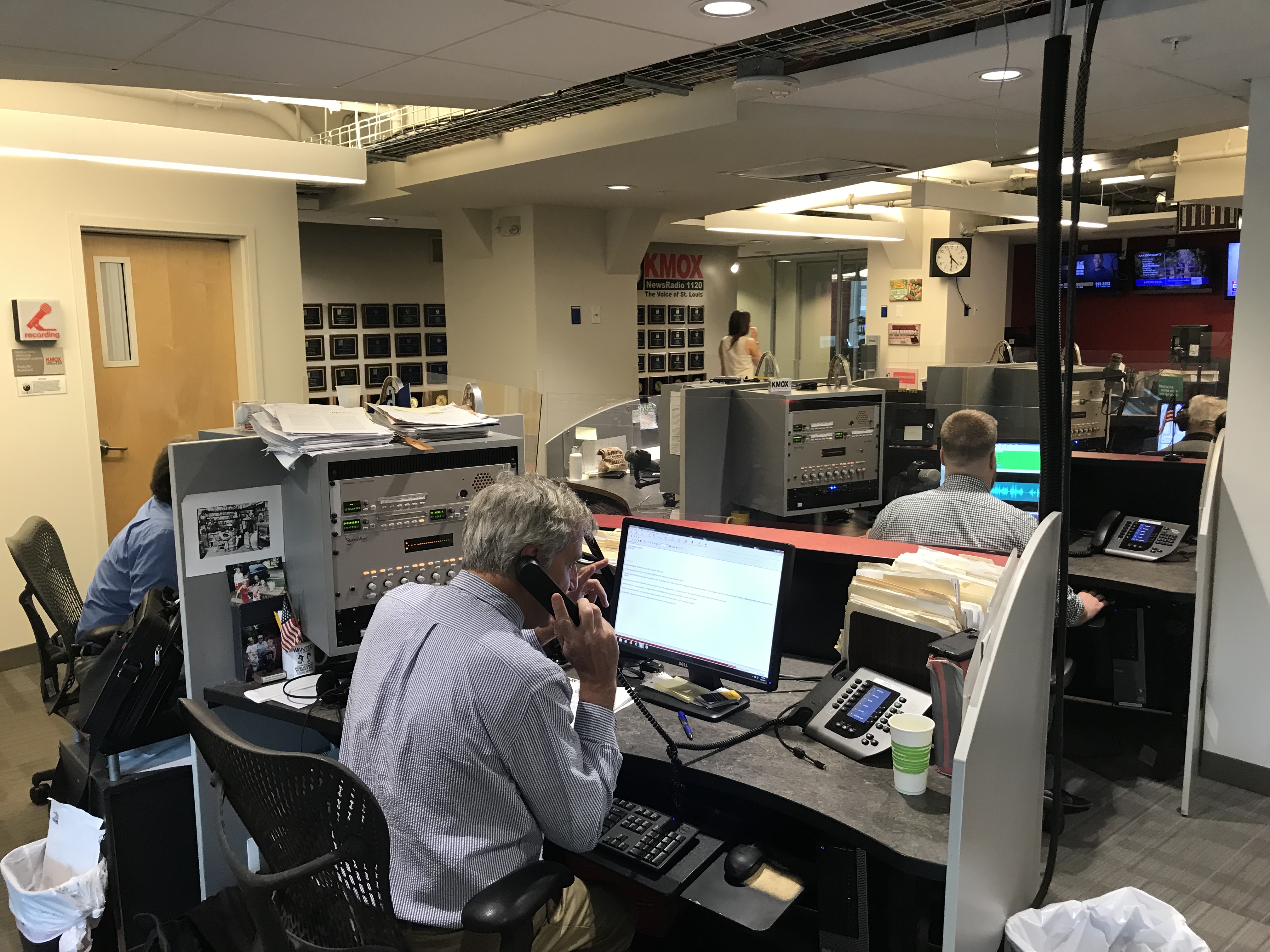Helping Our Community with Media Literacy Skills

By Beth Coghlan & Julie Smith
KMOX News Director / Author & Media Literacy Educator
No one in the news media needs to be told that we have gradually been losing the public’s trust. Our audiences are fragmented, “news” now comes from random posts on social media platforms and audiences seem to be more interested in what they believe versus what is actually true.
This isn’t a brand new phenomenon, we started to feel it years ago.
We here at KMOX, a legacy heritage station in the market for almost a century, decided to take action. We sent our anchors and reporters to meet the public and ask about their overall image of media. It wasn’t pretty. After analyzing the data, it was clear they felt the news media have an agenda. The plan was to use the data to formulate our coverage and increase trust.
Then COVID happened, and trust became a public-health issue.
It’s more important than ever that everyone learn to analyze, evaluate and critique the messages we consume since the average American consumes over eleven hours of media daily. We decided it was time to help our community with media literacy skills, a necessity for life in the 21st Century.
So how are we attempting this?
Weaving Media Literacy In
We’ve decided to do this in a number of ways:
- Our local expert provides “Media Literacy Minutes” which air twice a week. Each one explains a media concept and provides specific tools, such as how to verify an online photo or bot. Other topics include how media affect our worldview, deep fakes, checking fact checkers and understanding verified accounts.
- Whenever the media itself is in the news, we have our local expert discuss the topic with one of our daytime talk shows.
- Media literacy-related articles are prevalent on our website.
- We have produced the “What the Media?!!?” podcast series with one of our ace reporters and a local media literacy expert.
Season 1 of our “What the Media?!!?” podcast is complete, with Season 2 in production. Here are some of the topics we covered in Season 1:
- Infosnacking – The news cycle isn’t 24 hour, it’s 10 minutes. Most people are consuming a ton of information a day in small, bite-size bits, such as alerts and headlines. What we don't get is a full, sit-down meal. What are the effects of this?
- Memes – Why are they such a powerful communication tool?
- Conspiracy Theories – There’s no proof Bigfoot exists but there’s no proof he doesn’t. When society is going through a collective trauma, we are more likely to believe in conspiracy theories. Why?
- Media Literacy – What questions should you be asking about the media you consume?
Other podcast topics include fact checking, social media regulation, declining trust in legacy media and relationships with media personalities. You can listen to those here.
Our goal is to help the KMOX community see “behind the curtain” of how our stories are chosen, produced, edited and shared…ultimately improving our transparency and their trust in us as news providers. Stay tuned….
